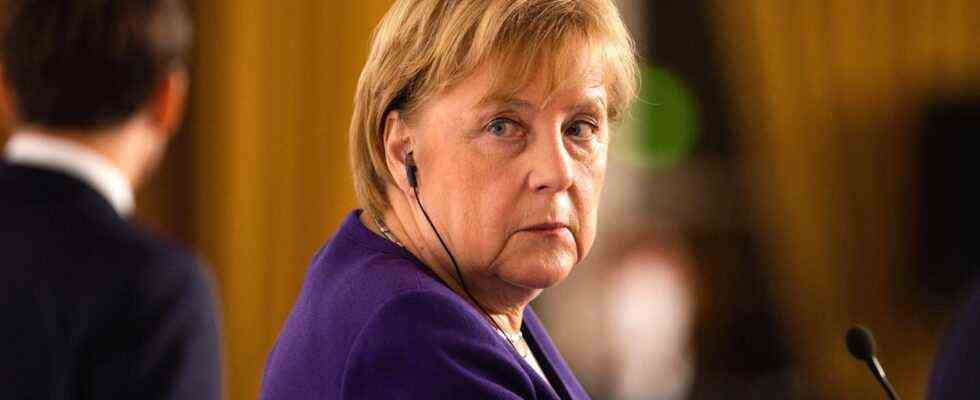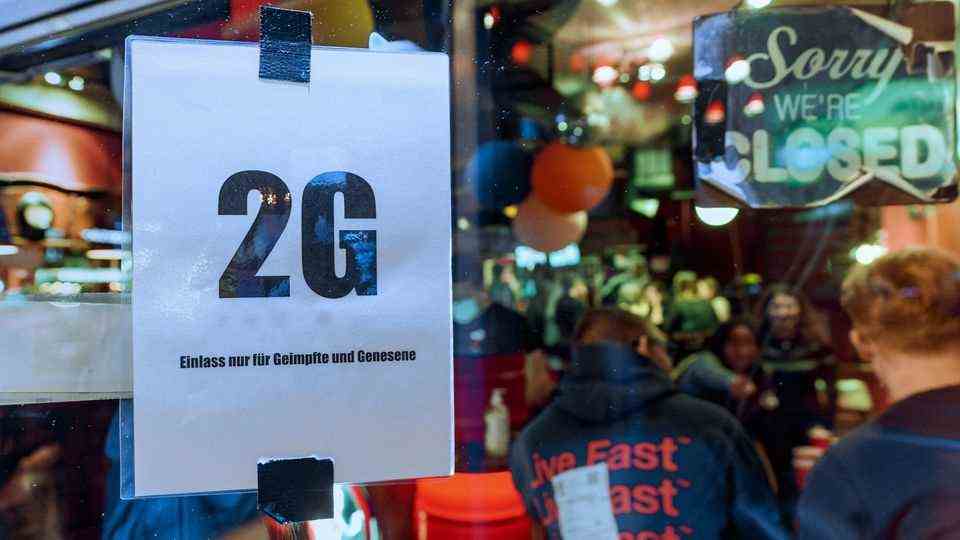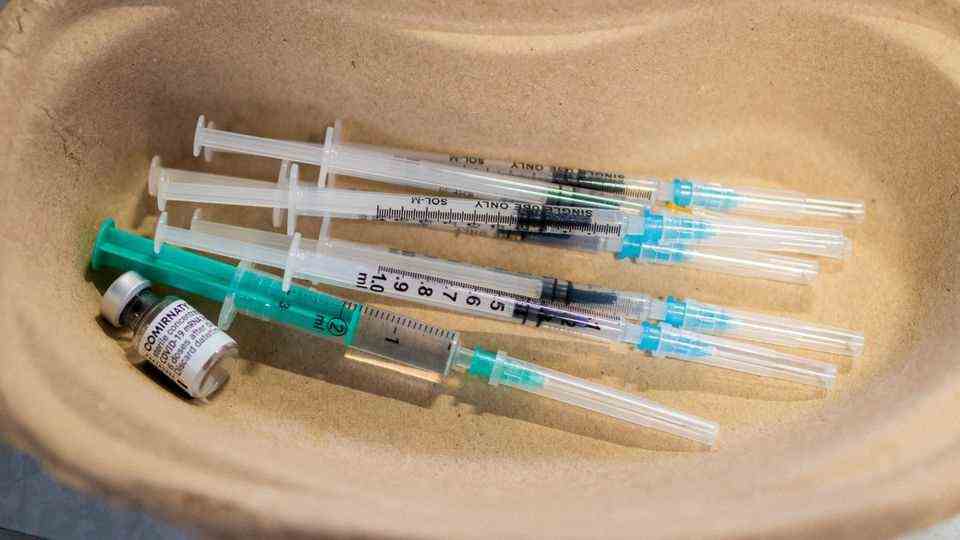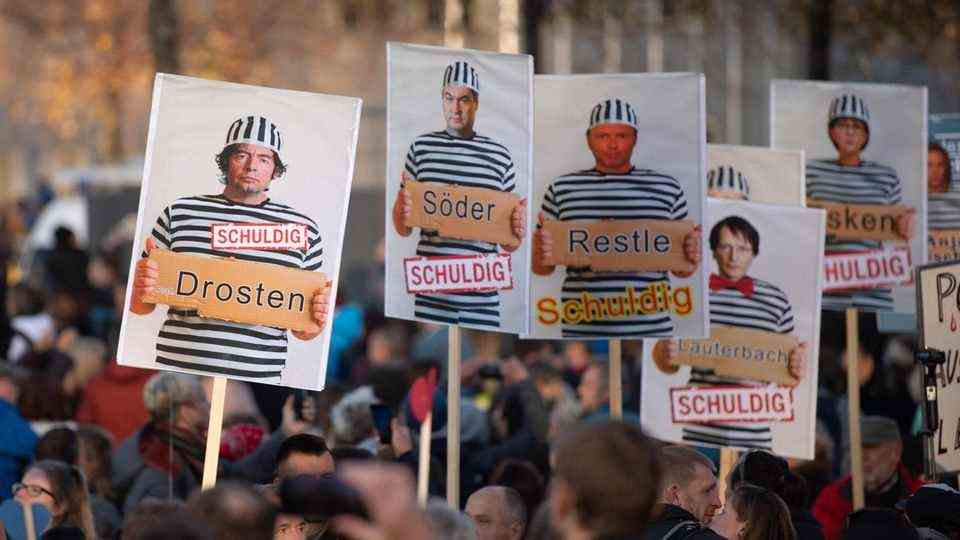Merkel, Scholz and the country chiefs will meet on Corona on Thursday. In view of the drama of the situation, mere rituals are out of the question. It is time for government to act clearly. It could look like this.
Today it is time again. Chancellor Angela Merkel, her presumed successor Olaf Scholz and the prime ministers of the federal states are meeting and discussing what Germany can do in the fight against the fourth wave of the corona virus. The past has shown that the expectations of these meetings are enormous. The results, however, were mostly unable to keep up with the pace of the virus. Too often one had the impression of attending a mere ritual: Merkel, Söder, Seibert are sitting in front of a blue wall and announcing things that, in view of the current corona situation, are perceived as too small, too late, too discouraged. And in the end every Prime Minister does his job again.
What stuck with the audience after such rounds was mostly resignation and perplexity in view of the lack of determination and a clear course in fighting pandemic. The impression: They just can’t do it! And that across all party boundaries, as the hiccups around the traffic light plans to expire the epidemic emergency and the introduction of mandatory vaccinations for certain professional groups has just shown.
Fourth wave as the sin of omission of the rulers
One of the reasons why people are so “grumpy” about the pandemic is that they have the impression that many of the political failures are homemade. Through bad management, negligent communication and discouraged government action. The unprepared tumbling into the fourth wave is an example of this. Christian Drosten and other scientists had already warned at the beginning of September that “social contact restrictions would again be necessary in autumn”. And then politicians like Marco Buschmann (FDP) stand up and speak of “that the situation has changed” and, as Bavarian Health Minister Klaus Holetschek (CSU) announced, the development could not have been foreseen. No, the situation has not changed. On the contrary: the escalation has been predicted for many weeks. And a large part of the people have mentally adjusted to it long ago. It is exactly like this as Jagoda Marinic writes in the “Taz”: “This fourth wave is not a natural phenomenon, it is the result of the sins of omission of the rulers.”
If the people in Germany had one wish, then they would probably wish that the whole corona boom was finally over. But if there were two wishes, it would also be that the political leaders finally do their job. It doesn’t take much to do that. A few points are enough.
Put an end to the bickering between parties: This eternal “house you mean, I hit yours”, the assignment of blame and the squint to see whether the measures could alienate one or the other voter group only annoyed me from the start. People don’t care whether Jens Spahn was right six months ago or Karl Lauterbach. All this cheating and staging by Markus Söder, for example, is just annoying. The common enemy is the virus. People do not expect any party-political petty or small things, no sayings in the style of CSU General Secretary Markus Blume (“The ‘team caution’ is unfortunately being replaced by the ‘team don’t know'”). No, people expect politicians to have a decent vaccination campaign. Something on which she has now failed for the second time. It’s just a symbol, but a joint statement by Merkel, Scholz, Söder, Habeck and Lindner, possibly even a joint TV appeal, could perhaps bring back the feeling of unity, the spirit in the fight against the pandemic. With Peer Steinbrück, that worked out well during the financial crisis.
Listen to the science: Nothing is more frustrating for people than déjà vu or the fact that an impending prophecy has actually come true. The fight against the pandemic is also so arduous because one gets the impression that all the things that are currently tormenting us can be predicted fairly precisely by science. Not necessarily at the beginning of the pandemic, when little was known about the virus. But the effects of the third wave, and especially the fourth that we are in now, were named weeks in advance. Incidences, the number of victims, the intensive care units filling up – every enlightened reader could read the warnings from doctors, modelers and virologists in the “Spiegel”, in the “SZ”, also here in the star. The time was there, we were in front of the wave several times and then we were washed by it. And that’s because some politicians believed they were smarter than science. Most people have long since understood: You cannot negotiate with the virus. But you can’t trick it and just muddle through, as politics has tried again and again in recent weeks.
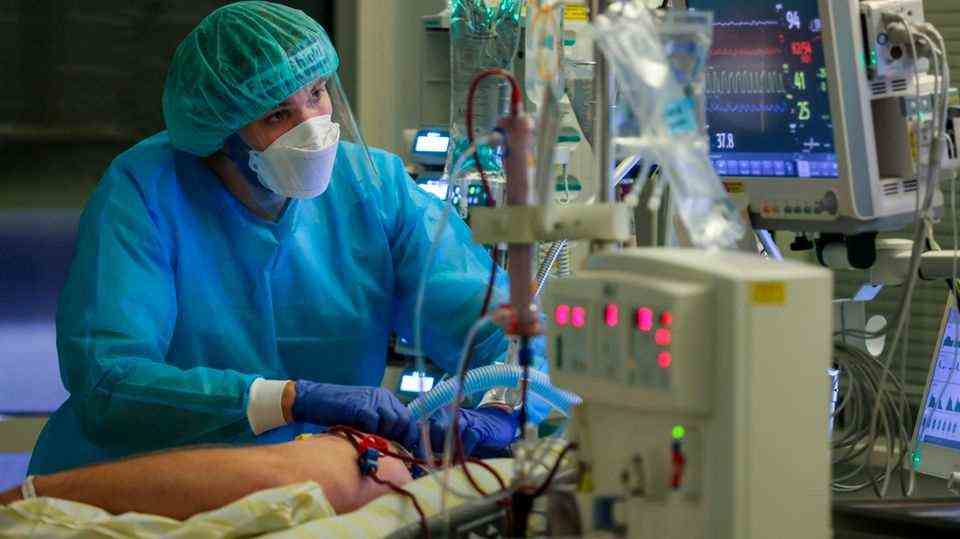
Say what to do. Do what you say: In view of the drama of the situation – beyond general contact restrictions – there are currently hardly any options left to ease the situation soon. The child fell into the well in the summer when the vaccination campaign was dragged and the boosters forgotten. Bundling forces there now still seems to be absolutely necessary, but will not relieve the strain on the intensive care units in the next few weeks. to lead. But what you can do: formulate clear, consistent goals. Increase the vaccination rate by ten percent by around Christmas. Or boost all nursing homes. The consistency has recently been a problem. The confusion in the debate and the insecurity in the population were fueled not least by misleading messages from politics. Complain about the low vaccination rate and vaccination centers are closing at the same time. Announce the end of the epidemological situation when the incidence skyrockets. Close test center and reopen it four weeks later. In the face of such contradictions, trust is lost.
What is needed now: a clear plan. The round on Thursday must finally show a way on which we want to get through the fourth wave together. Implement all, really all measures that serve this goal: 2G nationwide indoors. Mask requirement on bus and train. Compulsory vaccination for nursing and medical staff, possibly also for teachers and daycare staff. Possibly even a reassessment of the general compulsory vaccination. Communicate why you are doing something but not doing anything else. Take the people with you. Also say: “Yes, we were wrong about that. We didn’t know any better back then”. Building up trust. Take the cabin with you. But above all: ensure control and valuation. In short: to convince people that they are doing the right thing. This makes it easier to endure even such unreasonable demands as contact restrictions and possibly even necessary lockdowns.
No false considerations: What no one understands anymore: How can a comparatively small group such as radical anti-vaccination groups actually determine the entire discourse and put the solidarity of the large group of those vaccinated to such a severe test? As my colleague Walter Wüllenweber describes it here. The fear of dividing society may be justified. On the other hand: It has never been possible in the past without a confrontational dispute, see Eastern Treaties. Nuclear power. Iraq war. All of them are directional decisions that have been fought through rather than cuddled through. In this sense: No more consideration for vaccination opponents, who are sometimes just vaccine lazy. Instead: Make life as sour as possible for – intentionally unvaccinated people. 2G nationwide. Compulsory PCR test for a fee for those who don’t like vaccinations in public spaces. “But that is a compulsory vaccination through the back door?” Yeah damn it is! And that’s what it should be! Why are things going in Portugal, Spain, Italy – but not here in Germany? Nobody understands that.
First think, then talk. And knock no sayings: Spare us with steamy chatter and perseverance slogans of any “Freedom Days” or the lifting of all measures on day X. If one thing has been shown in the pandemic, it is that predictions by politicians have a fairly short half-life. Almost every sentence that was formulated full-bodied at the beginning of the year can be trashed today because Delta did not exist back then. Just like Jens Spahn and Helge Braun, who promised a return to normality early on after a vaccination, everyone will feel who now rule out contact restrictions, school closings or a new lockdown. Nobody can seriously make such a promise as long as there is a risk in the next few months that patients will be triaged in German intensive care units. Spare us with it. And especially with some full-bodied sayings. “Instead of a golf course on Saturday, vaccinate on Saturday”, the North Rhine-Westphalian Minister of Health Karl-Josef Laumann (CDU) called out to the resident doctors. You have to come to that first.
Ultimately, what citizens are now expecting from Thursday’s round is pretty banal: The people in government responsibility should do their jobs. Bearing responsibility, but also taking responsibility. For now it would be enough if the conference sent out a signal of unity and everyone, really everyone, would stick to the decisions made afterwards. How did Angela Merkel put it at the beginning of the pandemic ?: “The situation is serious. Please take it seriously too!”

